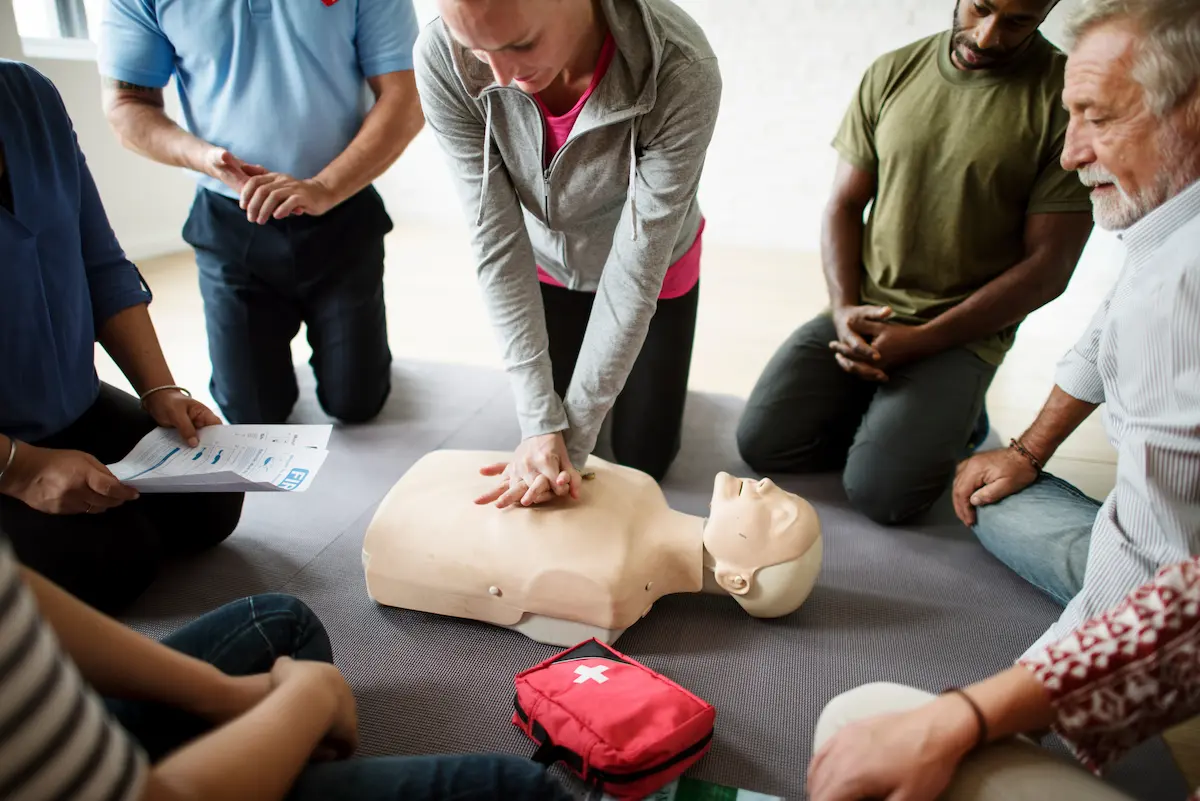Recently there has been a surge of momentum in legislative support for nurses, addressing issues like workplace violence and the consequences of clinical mistakes. Two noteworthy bills, the SAVE Act H.R. 2584 and H.B. 159, could be milestones in this legislative landscape with the potential to significantly impact the nursing profession in a positive way.
Introduced in April 2023, the SAVE Act H.R. 2584 aims to ensure the safety of healthcare employees by involving federal law enforcement in addressing assault and intimidation against them. This bill proposes federal consequences including fines, prison time, or both, for those who are violent or intimidate workers while on the clock.
As a nurse, I have personally experienced instances of verbal and physical abuse, a concerning reality that underscores the urgency of legislative safeguards for healthcare professionals. Hearing accounts from fellow nurses while in a leadership role further emphasizes the imperative for robust legal support in ensuring a safe working environment for all.
The Save Act is a bipartisan bill aimed towards preventing violence against healthcare workers, but its significance extends beyond that. It provides a platform where all areas of healthcare can unite. We can all agree that violence in the workplace must be addressed. This is an opportunity to bring hospitals, nurses, physicians, and staffing agencies together for a shared victory.
While the primary emphasis is rightfully on staff protection, there exists a reciprocal relationship between employee well-being and organizational vitality. Prioritizing staff welfare contributes to cultivating a harmonious and appealing environment within organizations. I encourage organizations to show support for this bill and provide an opportunity to have your employees write their representatives as well. Send a letter in as an organization and provide individuals an opportunity to send letters in as a unit; put it on your huddle board next to the potluck sign up. Keep your hospital homepage regularly updated with the bill’s progress in the legislative process. Safety in the workplace for us and our patients is not political, it is a human right.
H.B. 159 is specific to Kentucky, but sets an important precedent, offering protection to nurses in a time when the profession is facing a labor shortage crisis. The bill proposes an essential legislative change concerning clinical mistakes, limiting the possibility of nurses being criminally prosecuted for unintentional errors. This bill acknowledges that mistakes are inevitable but should be addressed within the civil court system instead of criminally charging nurses.
Reflecting on my early nursing career, I vividly recall an incident where I administered a medication, adhering to the established protocols. After administering the medication, I received a call from pharmacy that the medication had not been appropriately diluted before being delivered and labeling errors were present. While I diligently followed the five rights of medication administration, a systemic lapse occurred. Fortunately, no harm was done to my patient and swift corrective measures were implemented by the facility. This event predates Radonda Vaught’s trial in 2022, but it was something I thought about often as Radonda's trial unfolded.
Radonda's conviction changed how nurses practice. The trial has prompted a shift in conversations I have with nurses, emphasizing that what is safest for the patient is safest for you. It is a reminder for nurses to take care of themselves. Nurses picking up an extra shift so her co-workers are adequately staffed may not be what is best for her if she needs rest. The thought of being criminally charged for a mistake is terrifying and statistically more likely during a staffing crisis. If the potential for criminal charges due to a mistake had been known to me, I might have reconsidered my choice of profession. How many people are we losing to the nursing industry because of this disheartening situation? Nurses in every state should be fighting for this kind of legislation.
Nurses take an oath to dedicate their lives to helping others, and ensuring their safety in the workplace is essential. Legislative support, as seen in the SAVE Act and H.B. 159, lays the foundation for nurses to carry out their responsibilities effectively while feeling secure in their practice. Violence against nurses and the potential for criminal charges not only contradict the very essence of nursing, rooted in care and service, but also exacerbates the ongoing nursing shortage.
The issue of low wages is a frequently cited factor to the nursing shortage, but it is essential to recognize that nurses are facing challenges beyond compensation; the lack of necessary support impedes their ability to provide the high-quality care they aspire to deliver. The healthcare industry is currently undergoing emotional turbulence, and addressing the situation requires a more comprehensive approach than merely increasing financial incentives, as this is not a sustainable long-term solution.
Guarding against burnout and compassion fatigue extends beyond monetary transactions. Engaging in both emotional and tactile labor, nurses navigate the intricate landscape of patient care, orchestrating stays and providing support during the most challenging moments in people's lives. We operate beyond the confines of a typical “clock in and clock out’ job, as our commitment involves assimilating into the patients’ human experiences to facilitate their recovery.
This profound level of empathy and compassion is not a commodity that can be mass-produced or streamlined. It is an intricate aspect of our profession, where we undertake the responsibility of representing patients, who are sometimes unconscious, and witnessing tragic realities that linger with us. Ready to respond at a moment’s notice, nurses stand prepared to perform lifesaving interventions, exemplifying the depth of dedication and expertise required in our profession. A comprehensive approach involving self-care, support systems, and organizational strategies to support nurses is essential to sustain the resilience needed in the profession to prevent burn out.
Recruitment and retention difficulties often lead to compromises in the education of healthcare professionals. Such compromises are not conducive to rebuilding a robust foundation for post-COVID healthcare. The SAVE Act is a commendable initiative that signifies employer support and reflects the integrity of our nation. Likewise, H.B. 159 serves to prevent the undesirable practice of shifting accountability, ensuring that employers cannot abandon frontline workers during challenging circumstances. The term ‘nursing practice’ or ‘physician practice’ emphasized the collective responsibility involved in healthcare. It’s essential to underscore that the term ‘practice’ implies an ongoing process of refinement rather than perfection. These legislative measures not only uphold current standards but also signify a commitment to continuous improvement within the healthcare system.
Nurses play a pivotal role in healthcare, and these legislative initiatives recognize the importance of safeguarding their well-being to ensure they continue providing high-quality care to patients. As the bills progress, it is crucial for nurses nationwide to show support, fostering an environment that prioritizes their safety and well-being. The American Hospital Association (AHA) and the American Organization for Nursing Leadership (AONL) have expressed their support and provided templates for others to easily support the bill.
The current momentum in legislative support is promising, but our active participation is crucial to ensure its continued progress. Consistent and persistent engagement is essential; we must show up. I often read comments on social media about the disparity between hospital administration and frontline care givers. Support for the SAVE Act H.R. 2584 and H.B. 159 is an uncomplicated decision and an opportunity for administration to demonstrate their commitment and display genuine concern. Advocate for the SAVE Act and showcase your endorsement for healthcare workers.
Lesley Farro M.S.M.L., B.S.N., R.N. graduated in 2011 from Avila University where she earned her bachelor’s degree in nursing. Early in her career, Farro specialized in pediatric nursing and became a certified pediatric nurse. With a desire to make a positive impact in the field, Farro then obtained a master’s degree in organizational leadership in 2019 to combine her passion for helping people with leadership skills. Lesley Farro continuously demonstrates a unique blend of clinical expertise and leadership where she often seeks opportunities to improve healthcare delivery, patient experience, and nurse advocacy.




